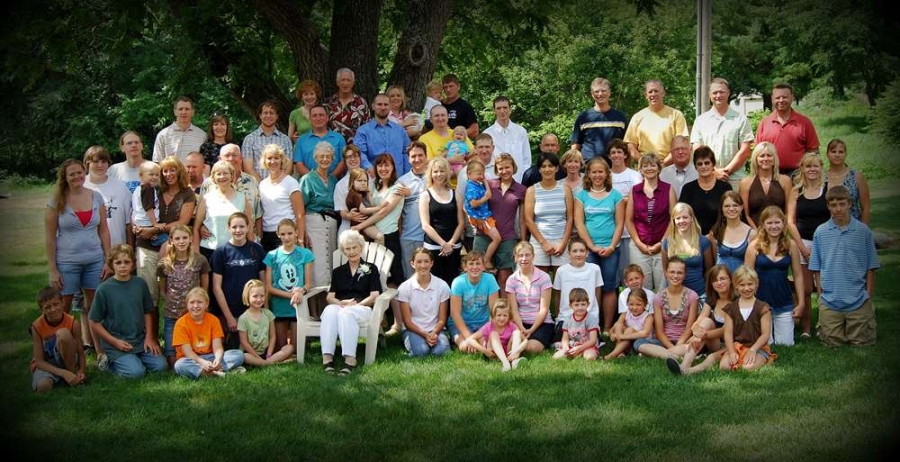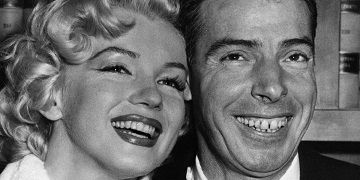|
Word Gems
exploring self-realization, sacred personhood, and full humanity
Editor's 1-Minute Essay:
Friendship
| to be known as one knows oneself |
return to "Friendship" main-page
"On this side, when I met my beloved ... I became herself - she was (so to speak) transformed into me. All that she knew and felt became the content of my consciousness. All that I had attempted and achieved, all that I had failed to accomplish, yet battled and struggled to complete, was known to her as no words, no thoughts even, as earth uses the terms, could have conveyed. We were one, yet individually our own very separate selves, knowing as we were known, to the full extent of each other's capacity. Capacity is the only limitation in the spiritual realms." Archdeacon Wilberforce, Letters from the Other Side
Compare to the following, from Excursions to the Spirit World by Frederick C. Sculthorp: “So I concentrated my thoughts on her and simply said: ‘Come!’ After a short pause my wife suddenly appeared in the lane walking towards me. I felt very happy at the success of my telepathic call… as she came closer, I noticed that her features were exactly as they had been on earth. Then, as our auras met, there was a transformation. [Her features] were perfection. She was my same companion, but different; yet I knew her better than I had ever done before. I would have recognized her unfailingly, even with my eyes closed, because her whole life and personality were contained within her aura and I could sense the years of her companionship with me. I was also aware that she knew me better than she ever did before. There seemed to be a wonderful harmony between us, for we both uttered the same words of greeting and blessing at the same instant. After that we did not trouble to speak with our lips -- speech was too slow… we were able to exchange thoughts with unbelievable rapidity.”

500 channels and nothing on
Nothing on, nothing good, nothing worth it. Similarly, as we "open a channel" to perceive what's going on "down below," we might notice a generalized floating unsavoriness infecting much of our lives.
You can be in a crowd of “500” people and still feel alone. You can try to fill your life with “500” activities, win "500" awards," be a hero to "500" people and still feel empty on the deep inside.
You can attend a large reunion, warmly interacting with relatives, people you love and who love you, but, even amidst this familial pleasantness, you might still be sorrowing behind the convivial smile; in fact, at such gatherings, more than usual.

|
Editor's note:
Here is a dramatic example of hidden sorrow and the winsome social mask, "held up with two hands."
Søren Kierkegaard is one of my favorite thinkers and teachers, but his secret griefs were almost too much for him:
I have just now come from a party where I was its life and soul; witticisms streamed from my lips, everyone laughed and admired me, but I went away — yes, the dash should be as long as the radius of the earth's orbit ————— and wanted to shoot myself.
|
the most important item I would share with you concerning the subject of friendship
Literature, movies, and songs often attempt to define and illustrate friendship, this most basic impulse of the human spirit. An incredibly vast subject, friendship cannot be addressed here with any degree of fullness; however, there is one point which may require our special attention.
We are social creatures, made to live in community, in oneness, with others. We desire to escape the prison of our own aloneness. We crave, if it were possible, for one person to know us as we know ourselves.
Is this asking too much? In this world, it seems to be. No one here has this. And yet our deepest selves, our innermost yearnings, insist on, and cannot be comforted without, this zenith-level affinity of mind meeting mind. Is this a problem without a solution?
There is a lofty, high-altitude, form of friendship as integral part of eternal life. New Testament Greek scholar Dr. William Barclay informs us that the word “eternal” does not primarily mean “endless duration of time.” It includes this, but, without something more, immortality alone would not bring happiness to us. “Eternal” from the original Greek offers the sense, “living as the gods.” It means that those on the higher levels of existence, in Summerland and beyond, do in fact enjoy this kind of rarefied friendship.
Perfected friendship awaits us, is stored up for us like an inheritance, as the poet Rilke instructs, and will yet satisfy and complete our spirits. The attendant sense of oneness, of truly being known, of mind touching mind, will be, by far, the most satisfying experience in our eternal lives.
I became her, and she became me
Notice the masthead quotation by Wilberforce. When he crossed over and was reunited with the woman he loved, they experienced a kind of mind-meld, a degree of intimacy and bondedness, unknown to us in our materialistic world. This unitive state did not destroy individuality; such is always preserved. But now, each voluntarily surrenders, each to the other, the underpinnings of consciousness, and a kaleidoscopic, breathtaking world of secret-garden affinity opens to them - as Frank Sinatra used to sing, "you think you've flown before, but baby, you ain't never left the ground."
500 channels and nothing on, even for your wedding day
The soliloquies of John and Mary reveal their apprehensions, even on their big day. They desperately negotiate to be happy, they seek for liberation from aloneness. And yet, even as the cameras flash, even as they flash those biggest smiles of their whole lives, they sense, down below, something is not right.

“The Wedding Song,” channeled lyrics from Spirit Guides, proclaims that the very essence of authentic romance is not a union of bodies - although, that's part of the package - but a “union of spirits,” a meeting of the minds. Only this kind of hot-plasma, real-thing fellowship will satisfy the soul, allowing it to escape the prison of its aloneness.
where is the voice to answer mine back
|

|
“A hand for each hand was the plan for the world, why don’t my fingers reach? Millions of grains of sand in the world, why such a lonely beach? Where is the voice to answer mine back? Where are two shoes that click to my clack? I’m all alone in the world!” Mister Magoo’s Christmas Carol, 1962
|
|
one person who understands
We might glance up at the starry night, the Milky Way ablaze; or we might step into a winter wonderland of freshly fallen snow; or maybe experience that April morning with the first sweet scent of spring. In those times, and also at ordinary times, we might say to ourselves, especially if we are missing someone, “Oh, how I wish I could save this moment and communicate it! How I wish I could convey to my lost friend what I am feeling right now! Oh, how I wish I could share it!”

The sense of transmitting one’s deepest thoughts and desires overwhelms with, is subsumed by, a spiritual hunger, a longing to be known even as one knows oneself. In the future, doubtless, we will share happiness with many, especially with a small group of dearest ones. These are they -- one's soul-group -- with whom we will trek through eternity.
However, among this privy council of intimates, there will be one -- one only -- who will know you to the utmost, know you as you know yourself: you will become her, and she will become you.
In this marvel of utimate-reality interconnectedness, we finally discover our "reason to stay alive for."
|
if you have one true friend, you may have more than your fair share
A quotation from Thomas Fuller (see it on the “Friendship” main-page). Essentially, Fuller is saying that virtually no one here on "the sorrowful planet" has a true friend.
Is his assessment too harsh? It may not be harsh enough.
no friends, only accomplices
The dysfunctional ego is constitutionally unable to have friends. It derives its energy and essence by crafting reality in terms of “me versus all.” It’s part of the individuation process. We talked about this in the “purpose of evil” article.
The "false self," if subjected to enough pressure, if sufficiently provoked, is potentially capable of any atrocity of history. This includes betrayal of others.
|
the seeds of evil

Star Trek: Next Generation, episode "Violations"
| "No one can deny that the seeds of violence remain within each of us. We must recognize that - because that violence is capable of consuming each of us." |
|
See Viktor Frankl's testimony about the camps. The "long dark night of the soul" will reveal these depths of malfeasance.
In the meantime, the ego has no friends, only accomplices: it will forge temporary strategic alliances in order to get what it wants; and every needy little ego wants something. This includes John and Mary.
And it tends to get worse before it can get better. Consider this from Deng Ming-Dao, 365 Tao:
If you spend a long period of time in study and self-cultivation, you will enter ... a world of extraordinary perceptions. You experience unimaginable things, receive thoughts and learning as if from nowhere, perceive things that could be classified as prescient. Yet if you try to communicate what you experience, there is no one to understand you, no one who will believe you. The more you walk this road, the farther you are from the ordinary ways of society... To speak to them of the wonders you have seen is often to engage in a futile bout of miscommunication. That is why it is said that those who know do not speak.
As you develop yourself more and more, not only will you not have a true friend – which is the norm in this world – but you will vastly lower the odds of the possibility. No one will be able to make sense of you; worse, almost no one will want to.
This planet is a terrible and severe classroom, good for only one thing: the individuation process, the crafting of personhood. In this “strait is the gate” environment, in order to reach a higher level perspective, we might be called upon to stand alone, even, if need be, against all the world.
Abraham Lincoln well understood this challenge. Listen to him here, my favorite quotation among many thousands on the Word Gems site:
I desire so to conduct the affairs of this administration that if, at the end, when I come to lay down the reins of power, I have lost every other friend on earth, I shall at least have one friend left, and that friend shall be down inside me.
|
|
Why do family members, old friends, and romantic mates drift apart or even abruptly split?
When my daughter was in high school, she had a girlfriend; the two seemed inseparable. Later, the friend chose an alternate lifestyle, assumed that she’d be judged, then abruptly, and permanently, broke off friendship ties.
An example of my own: In the “Evolution” article I recounted that in senior-high English class I’d delivered a speech on the subject of “Creationism versus Darwinism.” Almost all of it, as I now perceive, was error. However, a good friend since childhood disagreed, summarily rejected me, and put me away with no reconciliation.
the hidden cause of all conflict
Each of us, likely, could offer scores of such examples. Krishnamurti’s teachings on the ego – concerning dualism, fragmentation, separation, division – are not of mere academic interest only to professional philosophers. This information holds the sacred key to understanding why planet Earth is the stage for war and conflict, not just on the international level, nor solely with religious or political groups, but also among family members, friends, and lovers.
Why do people drift apart or become immediate enemies? The short answer is that they become an offense to each other. People identify with, make themselves equal to, belief systems which, they assume, will "make me happy." They say "this is who I am," and "this is what I need to be safe and happy," and if you represent something different, their self-image will be threatened, their prospects of safety and happiness will seem to fold - and then you'll be rejected, no matter the strength of former bonds of amity. You'll be rejected because, don't you see, it's a matter of life-and-death to the ego.
the carefully crafted self-image
In his 17.December.1969 lecture, Jiddu Krishnamurti offers one of the most clear and insightful explanations concerning the inner workings of this dark dynamic. When we feel offended by someone, he said, “there is an image about yourself,” one that we ourselves build. This ego-image reflects one's cultural “conditioning.” Why do we build this image? We do so “as a means of security ... of protection ... of being somebody.”
fear is behind the curtain
And what do we find if we draw back the curtain of this ego-image? “Now, if you go behind that," Krishnamurti says, "you will see there is fear.” What is the composition of this fear? It is the existential fear of "I don't have enough" because "I am not enough."
Let’s analyze this ego-image more closely. Why do we build it? What are we protecting? If we allow ourselves to become very still, if we taste and sample the nature of this hidden fear, we will find that we’re protecting a self-image, a mental projection of what the ego would like to be and have:
“I am the person who needs to be seen as virtuous, respected, worthy of honor. And it goes without saying that I know what’s best for you.”
“I am the person who needs to be seen as right and correct. As such, I need you to believe as I do, to agree with all of my religious superstitions, and my self-serving political views. I need you to accept all of my inflexible opinions because your assent makes me feel, not just safe and secure but, that I’m worth something.”
“I am the person who needs to be seen as successful, 'in the know,' and winning. I want you to be impressed with what I am and what I have so that I’ll be counted as a somebody. I need these merit badges so that I can face my peer group, family, and community and be considered important."
“I am the person who craves to be viewed as a wise person, an in-demand friend, a counselor with ‘the answers.’ I count on you to offer me this prestige so that I can feel good about myself.”
"I am the person who grew up on the 'wrong side of the tracks.' My family culture held great disdain for education and knowledge. This disrespect for anything truly progressive has always held me back, creating for me a self-image of 'I’m not smart enough to succeed. I can't get a high-paying job, that's for other people.' And so if you come to me and suggest that, in fact, I do possess talents and strengths, then I will feel very uncomfortable, begin to panic, as you attempt to lead me out of my dysfunctional comfort-zone. At the first sign, with your help, that I I could actually advance myself, I’ll fall apart, swoon in terror, and then begin to blame you, and hate you, before I retreat and crawl back under the safety of my rock."
"I am the person who is comfortable with present ideas. They've gotten me this far (sort of). And they may be half-baked, a straw-house of illogicality, but, even so, these irrationalities offer a certain veneer of meaning to my life. In support of this charade, I surround myself with so-called friends with whom I share a tacit agreement, an unspoken pact: 'You must agree never to point out the non sequiturs of my beggarly superstitions, and I will agree to act as if I accept yours.' That’s the conspiratorial deal. However, if you come along with hard empirical evidence, well-reasoned positions, and suggest that I might want to take a more honest approach to what I believe to be true, well then, I will have to hate you for upsetting the applecart of my entrenched and time-honored unreasonableness."
"I am the person who carries on the traditions of my family. Unfortunately, these are more like peculiar shibboleths, marks of tribal distinction, but not of honor and dignity. I feel duty bound to ask, “What would mother do?” or “This isn’t the way dad did it.” I don’t have enough self-respect to live my own life, follow my own insights, quest for my own meaning and destiny. And if you come along and encourage me to think for myself, to break the apron strings (years after mom passed on), I will feel frightened, disoriented. And then I will blame and hate you for pushing me toward autonomy, full personhood, and self-realization."
“I am the person who needs you to make me happy. You can be my friend/lover/relative if you do exactly what I say and think just as I think. Anything less than this will be threatening to 'who I am.' I need you to love me -- just as I am, with all of my soft-underbelly beliefs -- to compliment me, to defer to me, so that I can judge myself as ok. Don't let me down, I warn you.”
“I am the person associated with you, and if you disappoint me, if you fall short of my expectations - especially after all I've done for you - if you fail to make me happy, if you begin to take on contrary opinions, then you will become an opposing force to what I want and to the image I’ve created for myself. If any of this happens, then, of course, I’ll have to get rid of you, even though we’ve meant much to each other over long years. I'll have no choice but to shun you.”
And so if anyone – sibling, friend, lover, child, parent -- stands as opposition to any of these ego-images, then the offending person will immediately be counted as an enemy, no matter a long history of cordial relation.
a closer look at the hidden fear
We find there’s more than one curtain to open. The ego’s need to be seen as right, virtuous, properly religious or political, is not the only hidden agenda. As one pierces the levels of self-obfuscation we discover the core terror which vivifies all of the ego’s activities. It’s the fear of death. This is the central terror, as we learn from the great psychologists.
This means that when one is attacked, there may be purported surface issues, but the real reason people rage and become apoplectic is the ego fighting for its life. It's identified with, made itself equal to, being right, virtuous, and all the rest, and if it fails to promote itself with these "images," then it will face a kind of psychological death. “Who will I be?” it asks, if these false-security images are minimized or taken away?
the high cost of following the truth wherever it leads
All this is most dire. The reality is, if you assiduously pursue the truth, no matter the cost or where it might lead, then you will lose (for a time) almost every last person who was once close to you. Why must it be so? - because you will become a living, walking threat to another’s carefully crafted self-image.
narrow gate, without fellowship
Editor's note: In his writings, Andrew Jackson Davis warns of the "narrow gate" that leads to life; few be that enter it. Those who live courageously by following the truth wherever it leads, as Davis points out, “will walk a pathway without fellowship of thy earthly brethren.” The cults have long employed the weapon of excommunication, shunning, and ostracization - a forced separation from friends, workmates, and family - toward anyone who disagrees with the hive mentality. This putting away occurs not just in religion but in dysfunctional families, corporations, academia, politics, and other power-seeking groups. They’re afraid of contrary opinion which might disembowel and expose shallow teachings. And so they’ll get rid of you for spreading "misinformation"; and you, as a truth seeker, will be censored and required to make your way through this world “without fellowship of thy earthly brethren.” But, be assured, a day of reckoning is but one missed heartbeat away.
We, ourselves - not some mythical Satan - are the focal point of all evil in the universe. It’s the pathological ego within; it’s the false self, the ego-images, ever attempting to find safety and security for itself, to bolster an inner neediness, the existential emptiness deep within.
We cannot become truly educated, nor reach a good level of wisdom and maturity, in the highest and best sense - or meaningfully prepare ourselves for Summerland or to be with one’s Twin Soul - without understanding the wiles and machinations of our own personal “heart of darkness.”
please, it’s very impolite of you to notice that I lack a self
Soren Kierkegaard: “But in spite of the fact that man has become fantastic in this fashion [i.e., lives unrealistically by denying his own mortality and impending death, the terror of which is covered up by palliatives such as ritualistic, form-based but empty, religion], he may nevertheless … be perfectly well able to live on, to be a man, as it seems, to occupy himself with temporal things, get married, beget children, win honor and esteem – and perhaps no one notices that, in a deeper sense, he lacks [an authentic] self.”
|
The following is reprinted from the "Omega" book:
|
authentic relationship as intense magnetism
Editor’s note: I’d like to dedicate the following to a very old friend. His name was David. When I was seven, our farmhouse was being moved onto a new foundation. Surrounding the construction were very large piles of dirt from the excavations for a new basement.

One evening, a farm-family visited our house. I didn’t know them, and I’d never met their son David, two or three years older. It was unusual, we two immediately hit it off. I felt him to be a “best buddy.” For a few hours that July evening, while the parents seemed to have been talking business, David and I played “king of the mountain” on those giant dirt piles, threw clay clods at each other, and just laughed and laughed. It was one of the best times, and I’d never met him before.
friendship as sacrament
There was something about him that really meshed with me. But our good time ended, the family drove out of our farmyard, and I never saw David again. Because he was a little older, I think what happened was we grew up in different orbits, and so our paths failed to cross. Even so, part of me never forgot that fun time we had.
My next memory of David, fast forward, I can see it in my mind now, I’m an older teen and my mother is informing me that David has been killed in Viet Nam. I was taken aback but displayed little emotion. Today, 55 years after the fact, as I recount that event of elegiac news, I find myself weeping. But maybe someone else also weeps for me.
Two years ago, I was thinking about David. I remembered his first name but never knew his family name. And I wondered about how I could find out more information. Shortly after this unspoken request, I was looking through an old book about the home-village, a commemorative work featuring a few paragraphs on all the families from the vicinity. I hadn’t looked at this book in many years, and my purpose was not to find information about David, as I didn’t know his last name. My intent was to read about a jovial old neighbor, a Mrs. G.K.
In somewhat recent years, I'd visited her, though now passed on. She brought out an old photo album and told me a very funny story. On their old farm, a lifetime ago, they’d used dynamite to dislodge a rock in the farmyard. It seemed to be a small rock, just nuisance value, jutting from the ground. However, as they dug around the rock, said rock-in-question turned out to be much larger than they’d suspected. And when the explosive sent the fully revealed, now disgorged, boulder flying, it was discovered to be almost as large as their farmhouse! – their own dwelling narrowly escaped leveling by the unruly small mountain. She had photos, they're posing by the megalith, like a fisherman displaying a big catch, the formidable boulder now positioned smartly just next to the house. It was a close call. Well, we laughed a lot about that.
But in my searchings through the village-history book for Mrs. G.K., by “chance”, among hundreds of family histories, my eyes happened to light upon a reference to David. Immediately, I could tell that something was up, and knew that he had "pulled some strings" to arrange for me to find him in the only source in my possession.
In her books, Lilian Whiting recounts how a departed close friend, through as series of seemingly fortuitous events, managed to make contact with her. Analyzing the marvel, Whiting came to a better understanding of authentic relationship.
From Lilian Whiting's “The World Beautiful” (1898), in a chapter entitled “Friendship As Sacrament”:
Friendship in its best sense is the Divine part of life, and the communion with the angelic is best learned by the communion of spirits, - for the human being is, primarily as well as potentially, the spiritual being even in this part of life. So divine an experience as friendship should be divinely lived.
It is a sacrament, and should be held in living faith and perpetual sweetness of spirit. Friendship should be held amenable to an appreciation of high qualities… The term is, indeed, a larger one than that restricted to the mutual relation of companionship, although the latter is the perfection, the very inflorescence, of friendship.
The perfect companionship is the most exceptional of joys, and a joy so dependent on temperamental relation and on conditions that are, so to speak, prearranged, that it can never be made a matter of will or of conscious choice.
Our companionships are our magnetisms. The friend whose appearance never interrupts but always inspires; with whom one would always choose to share music, painting, poetry, the drama; in whose companionship the delights of travel are doubled; the friend whose presence is always harmonious and infinitely dear, — is one with whom mutual relations are determined by something higher than the conscious choice of the moment.
To have all friendly feeling and good-will toward another does not in the least presuppose this magnetic relation of companionship. That must establish itself, or it can never be established. It cannot be demanded as a right or entreated as a favor...
The sympathetic magnetism that springs spontaneously between two persons cannot be made or unmade by conscious choice. It is the mutual recognition of the higher selves of each. Such a relation endures, though it be not supported by outward intimacy…
Some subtle and intimate communion of spirit, irrespective of outward meeting, keeps true friendship alive. Does not this fact tend to confirm the theory that we live largely, here and now, the life of the spirit to a degree not always registered by the lower consciousness?

E. Earlier, I'd been groping for words to explain the potency of touching foreheads and why it means so much. I said that:
what we really wanted was to magnify, to focus on, or to make real, our inner sense of soul harmony... the mutual "consonance" of deeper energies... this was very clear to me, and we wanted to completely immerse ourselves in that sweet confluence of sacred essence, each for the other.
K. I think Lilian Whiting also felt compelled to analyze this process.
E. I would say, she did a better job. Her phrases, "friendship as sacrament" and "our companionships are our magnetisms", elegantly and poetically distill the essence of authentic relationship.
K. The power of the well-chosen word.
E. "Sacrament" and especially "magnetism" take me closer to what I was trying to say. "Sacrament" speaks to the divine, the spiritual aspect, of true love, and "magnetism" packs even a little more punch than "consonance."
K. Elenchus, we've talked about Whiting's message many times over the years. But what strikes me with new force is that all true love relationships, whether between best friends, or parent and child, or Twin romantics, are based upon, as Whiting said, "some subtle and intimate communion of spirit".
E. This invisible connection, this "sympathetic magnetism," defies human effort; it "cannot be made or unmade" by will-power or "conscious choice." It simply exists, was originally "God breathed," and stands untouchable as one of life's immortalities.
K. The inner "consonance," the subtle "magnetism," is not the same as being friendly with others. Totally different. As we've recounted, one might not even like another at the moment, but the hidden "magnetism" isn't going away. And if it's not already in place, you can't drum it up, you can't wish it into existence, to make someone your best friend or true mate.
E. Much of this will be confusing to immature ones. In the world, there are virtually no true friendships, no true love affairs.
K. Many will disagree with this statement.
E. They will disagree but only because they've not yet performed the ego's autopsy to see what its made of. Every ego wants something from you. The ego has no true friends and lovers but only accomplices and conspiratorial allies.
K. It uses others to get what it wants. And what does it want? It wants others to fill the "hole in its heart", that of, "I don't have enough" because "I am not enough."
E. But authentic relationship is a "sacrament" because it accesses the mind and essence of God. This eternal spiritual dimension creates bonds which "cannot be sundered."
K. And it's this hidden affinity that we wish to luxuriate and immerse ourselves in when we touch foreheads.
|

|
Editor's last word:
“Friendship” becomes topic-icon #100 on the home-page. I never write unless I feel I have something important to say. And, most times, it feels as if “this is the most important idea I’ve ever tried to convey.” Maybe, this time, it’s true.

By the way, did you notice? I didn’t, until I’d finished this writing.
The boy and girl sitting by the lake, ever so slightly, are touching hands; very discreetly, almost imperceptibly, fingers meet. Others in the foreground by the boats wouldn’t be able to tell; or, in this small disingenuity, as they stare blankly dead ahead, are they encouraging a studied nonchalance - for themselves?
We’re reminded of the disengaged two in “The Remains Of The Day” and their “ludicrous proposition.” The enchanting beauty of a lake at sunset provides excellent venue, and cover, for two young teens intent upon hiding from each other.
We trust that this pair, sitting by "a lonely beach," will eventually work this out. After all, as we learned from the lamenting young boy, "a hand for each hand was the plan for the world" - hands touching hands, minds touching minds.

|
|








